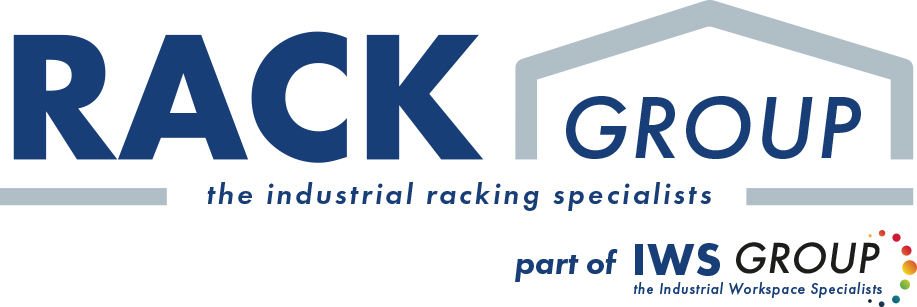Description
The Modulean® mobile framework and boards are sold separately for you to customise to suit your needs.
The framework also enables you to have up to 4x Modulean® Lite Shadow Boards, 2x on each side and 2x racksack® trolleys.
> Shop > Modulean® Lite Mobile Framework
£201.00

This Modulean® mobile framework with wheels on one foot holds two 500mm x 500mm Modulean® Lite Shadow Boards on each side, fixed with screws for a secure finish.
The Modulean® mobile framework and boards are sold separately for you to customise to suit your needs.
The framework also enables you to have up to 4x Modulean® Lite Shadow Boards, 2x on each side and 2x racksack® trolleys.
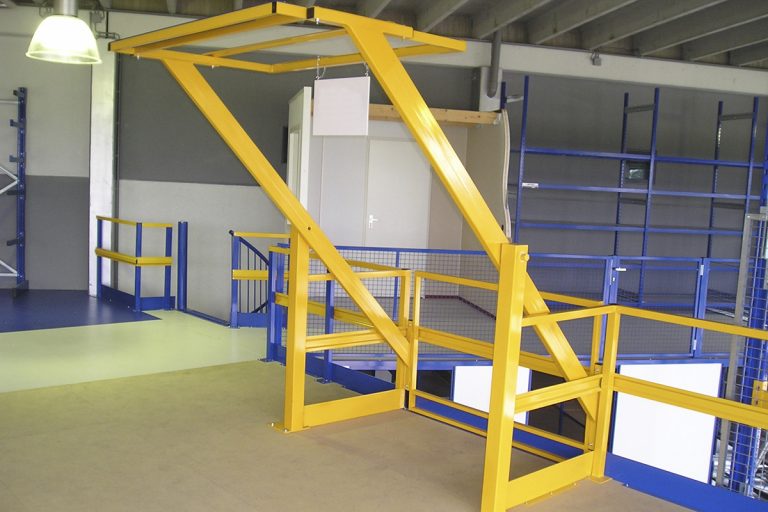
PALLET SAFETY GATES
FEATURES: Safely load and unload pallets from mezzanine floors. Multiple options to suit requirements.
IDEAL FOR: Mezzanine floors, new installations or retro-fitting to existing structures.
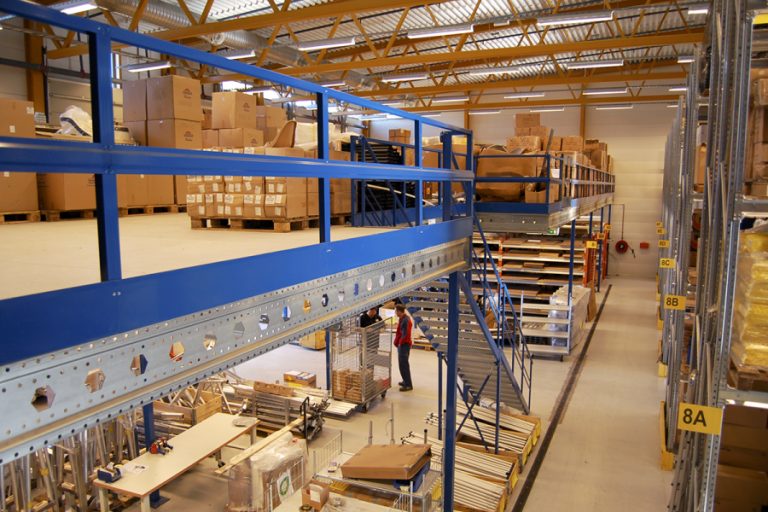
MEZZANINE FLOORS
FEATURES: Increase available storage area without expanding warehouse floor space.
IDEAL FOR: Additional racking or shelving, office spaces and meeting rooms, canteens.
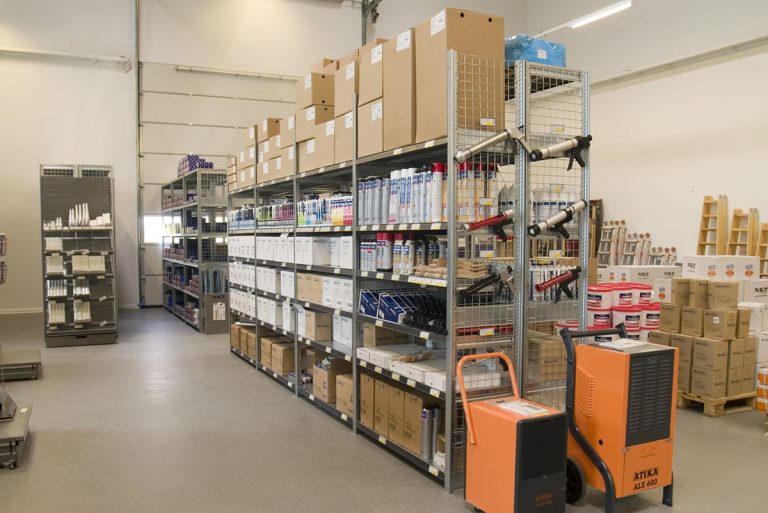
SHELVING SYSTEMS
FEATURES: Multiple options available, flexible and adaptable storage for all types of use.
IDEAL FOR: Stand alone shelving, high-rise installations, multi-tier systems, manual or automated picking.
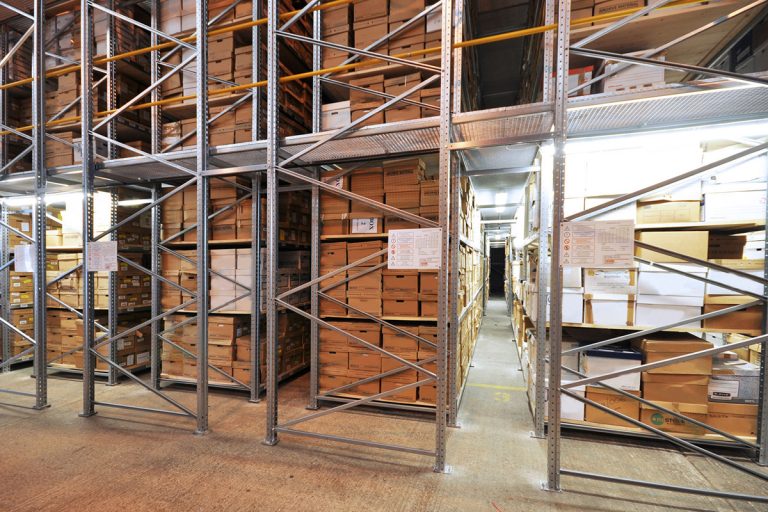
MULTI-TIER RACKING
FEATURES: Pallet racking structure with multiple levels and walkways. Can be installed from the floor or on mezzanine structures.
IDEAL FOR: Multi-functional, manual storage, cartons, boxes, garment storage.
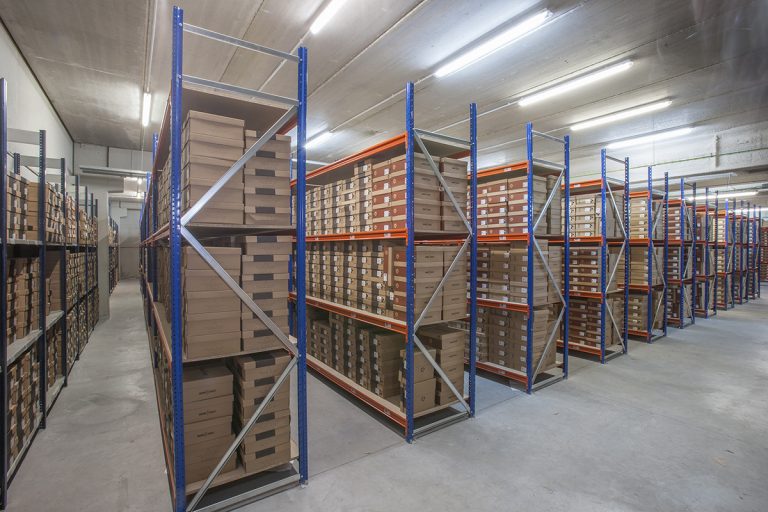
LONGSPAN RACKING
FEATURES: Versatile and adaptable storage for warehouse and office environments. System accessible from both sides.
IDEAL FOR: Small and large items, industrial storage, archive storage, commercial stores.
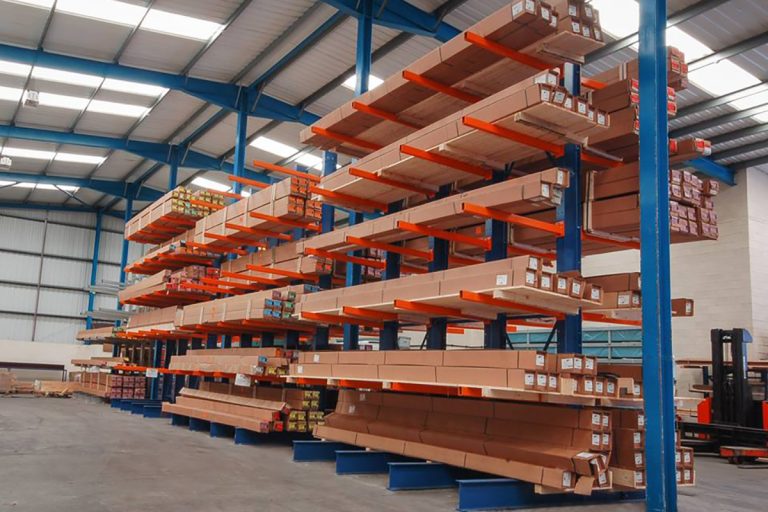
CANTILEVER RACKING
FEATURES: Versatile storage for long, heavy goods. All levels accessible by forklifts, Light, medium, or heavy duty.
IDEAL FOR: Horizontal storage of long items such metal bars, pipes, tubes, or timber.
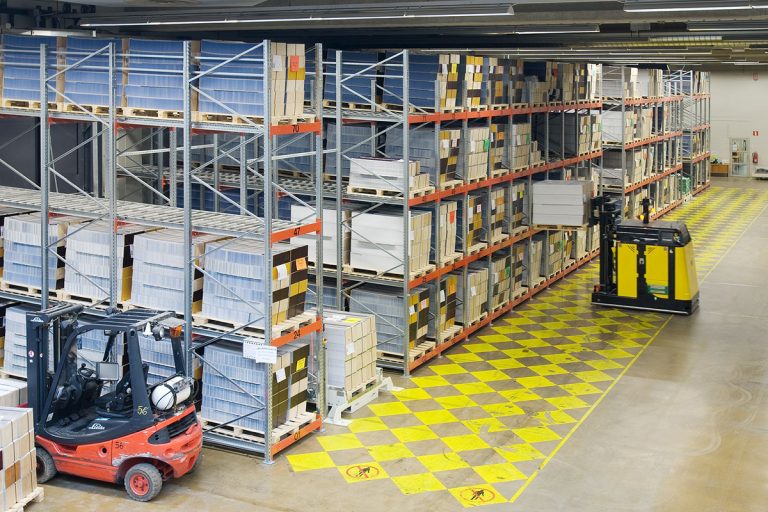
PUSH BACK RACKING
FEATURES: Single aisle loading for compact and efficient storage. LIFO (Last In, First Out) system goods are pushed back by the next one.
IDEAL FOR: Loading and unloading from the same side, non-perishable goods.
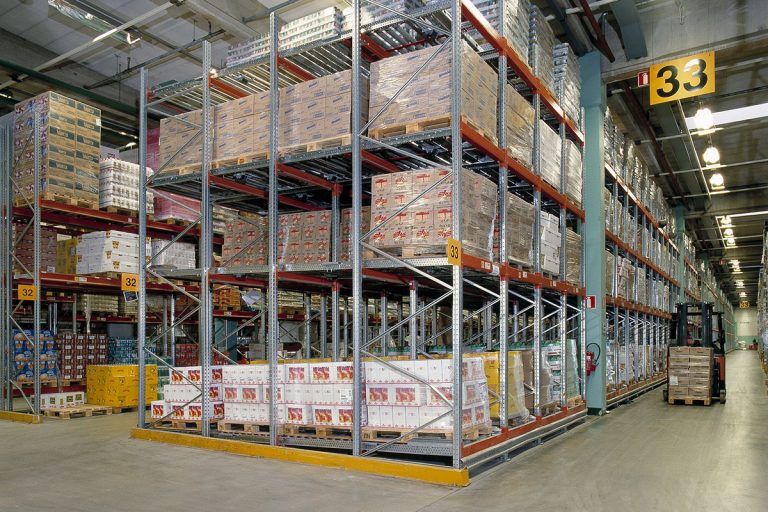
PALLET FLOW / LIVE RACKING
FEATURES: Inclined roller beds enable pallets to move along to the end of the level. FIFO (First In, First Out) for efficient loading / unloading.
IDEAL FOR: Stock with best-before dates, food, medical, or cosmetic products.
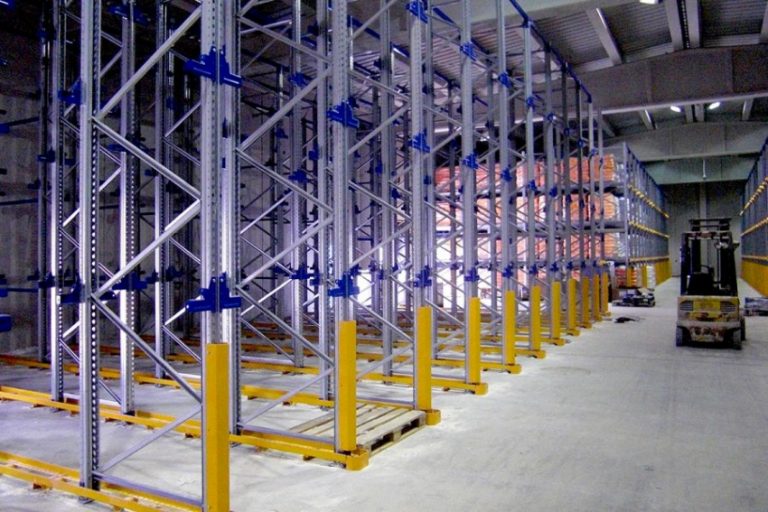
DRIVE-IN RACKING
FEATURES: Compact, high density storage that reduces forklift operations and maximises space and height.
IDEAL FOR: Large quantities of identical goods, goods with low rotation, non-perishable items, LIFO (Last In, First Out) operations.
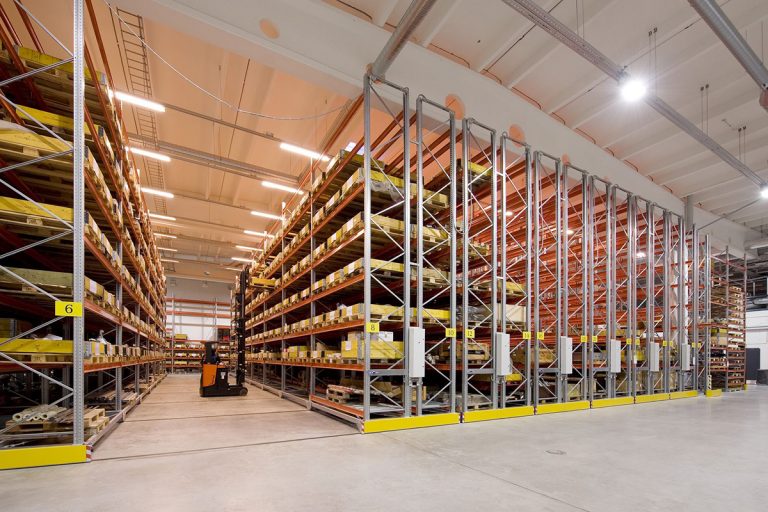
MOBILE RACKING
FEATURES: Dynamic and high-density storage. Direct access to any stored pallet.
IDEAL FOR: Warehouses that need to optimise space, cold or freezer storage, and those with low turnover goods.
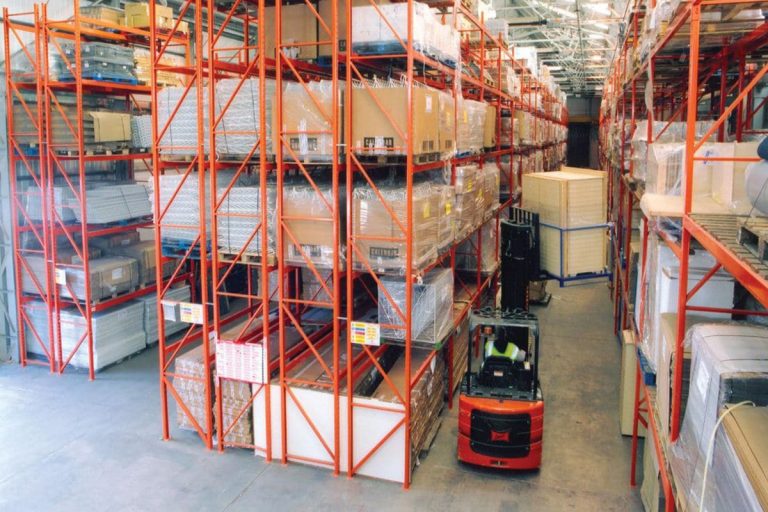
DOUBLE DEEP RACKING
FEATURES: High storage density for reduced number of aisles. Adjustable and efficient storage for LIFO (Last In, First Out) use.
IDEAL FOR: Warehouses with non-perishable, duplicate stock items.
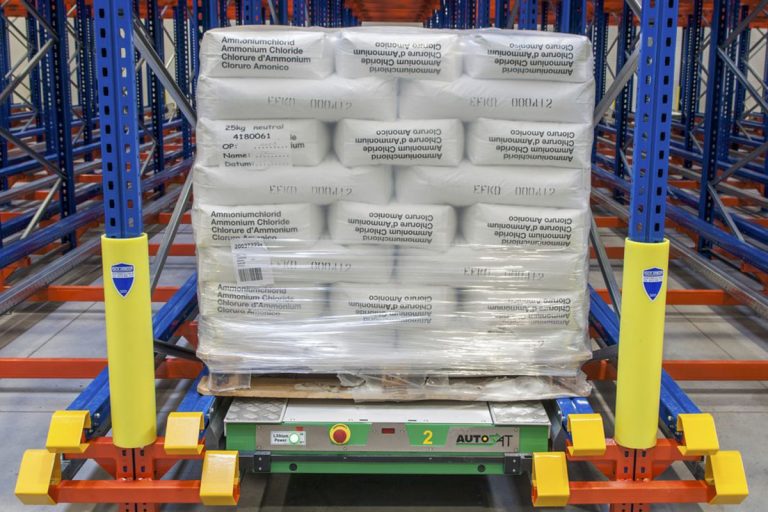
SHUTTLE RACKING
FEATURES: Compact, high-density storage. Optimum use of space with semi-automated FIFO (First In, First Out) or LIFO (Last In, First Out) options.
IDEAL FOR: Warehouses with high turnover of stock, high volumes of pallets, seasonal merchandise, cold and freezer storage, perishable and non-perishable stock.

NARROW AISLE RACKING
FEATURES: High density system for efficient storage. Flexible and compact, special handling equipment is required.
IDEAL FOR: Warehouses with reduced floor space, those needing quick access to loads, or items in high rotation.
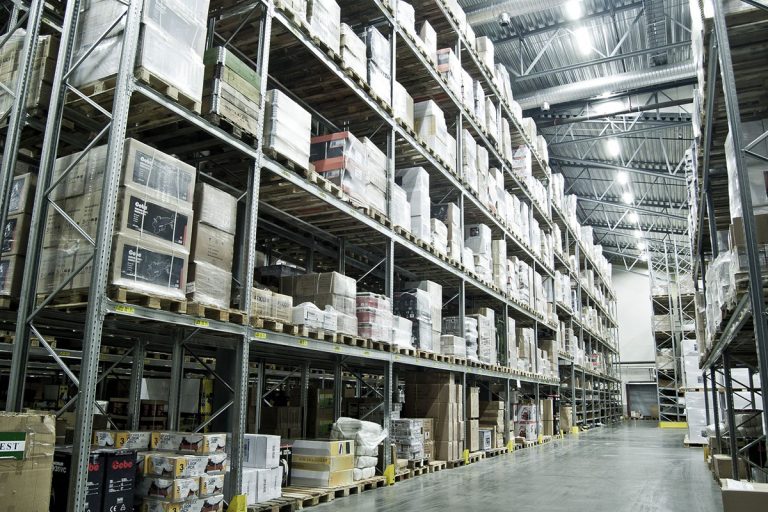
WIDE AISLE RACKING
FEATURES: Unrestricted access to pallets at all times. Versatile and long lasting.
IDEAL FOR: Warehouses storing pallets, containers, or individual boxes.
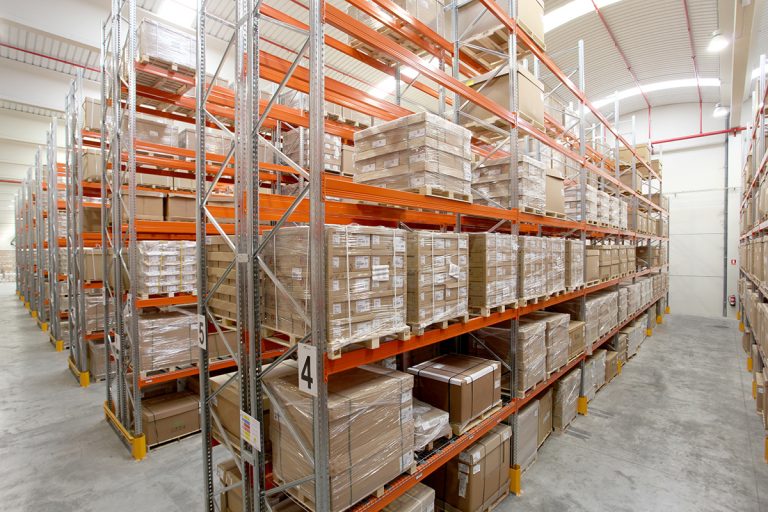
ADJUSTABLE PALLET RACKING (APR)
FEATURES: Efficient and robust systems for heavy loads. Palletised items accessible by forklift trucks.
IDEAL FOR: Warehouses storing pallets, containers, or individual boxes.
Rust and corrosion can seriously weaken racking
Key things to know:
REPAIR: Monitor cases of rust and corrosion, replacing all components that pose a safety risk.
PREVENT: Store components inside and away from moisture. Choose racking made from galvanised or stainless steel to slow down any corrosion.
All racking is required to have a Safe Working Load Sign
Key things to know:
REPAIR: Replace damaged Weight Load Signs or order replacement signs if your storage system has been altered since installation. Need help calculating your safe weight load? We can help.
PREVENT: Ensure all aisles of racking have Weight Load Signs to avoid beams becoming overloaded and unsafe.
Beam end connectors are prone to knocks and tears
Key things to know:
REPAIR: Damaged beam end connectors often result in a replacement of the entire beam to preserve the safety of the racking system.
PREVENT: Regular inspections of the system, professional repairs, and skilled operators can all help reduce the risk of beam end connector damage.
Beams can be hit when loading pallets and MHE turning in aisles
Key things to know:
REPAIR: Replace damaged beams above a category green risk to ensure your racking is safe and operational.
PREVENT: Ensure the correct beam is being used for your storage needs and regular training is given to operators to reduce the number of beam impacts.
Bracing and frames can be hit by moving pallets or MHE.
Key things to know:
REPAIR: Replace or repair damaged bracing as soon as is required of the SEMA code of practice.
PREVENT: Although sometimes unavoidable, protecting racking frames with impact protection barriers can help reduce how close MHE can get to the racking. Training operators on careful and accurate placement of pallets can also help prevent damage.
Anti-Collapse Mesh prevents accidents from falling objects
Key things to know:
REPAIR: Request anti-collapse mesh to be installed on any existing racking systems that require a barrier between operatives and stored items.
PREVENT: Add anti-collapse mesh to racking when installed to ensure the racking is safe before use.
Missing bolts and locking pins can result in dislodged components
Key things to know:
REPAIR: Order replacement bolts and safety locks. Replace any damaged beams that have become dislodged and require repair.
PREVENT: Regular inspections should include checking for any missing bolts / locks, as well as any dislodgement of beams. Hold stock of safety locks to replace any missing components.
Base plates are essential components for the safety of racking
Key things to know:
REPAIR: Damaged base plates should be repaired or replaced as soon as they pose a safety risk.
PREVENT: Ensure all base plates are secured to an unbroken floor with at least 1 bolt. Protect MHE from hitting uprights and base plates with racking protection guards.
Racking front and rear uprights are often impacted by MHE.
Key things to know:
REPAIR: It's advised that damaged racking uprights are replaced rather than repaired to ensure safety compliance.
PREVENT: Most damage occurs within the first 600mm of the upright. Protect racking uprights from being damaged in the first place. Protection guards deflect and absorb impact before it can cause damage to the upright.
Categorised as very serious damage requiring immediate action.
Categorised as hazardous damage requiring action as soon as possible.
Categorised as requiring surveillance only.
We can dismantle and remove all unwanted racking equipment from customer sites.
Materials are removed from site with limited disruption to customer operations.
We inspect all materials, disposing of anything that is beyond repair in an environmentally friendly way.
An on-site assessment of existing racking layout is carried out.
A new layout proposal is supplied with CAD drawings.
Layouts are designed to utilise the space available as efficiently as possible.
We offer an initial on-site survey to assess whether the site can safely accommodate the proposed new storage systems.
A full CAD drawing is supplied alongside an installation brief for approval.
A quote is submitted upon design approval with a schedule of works.
